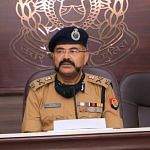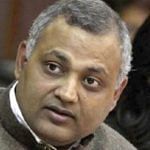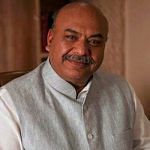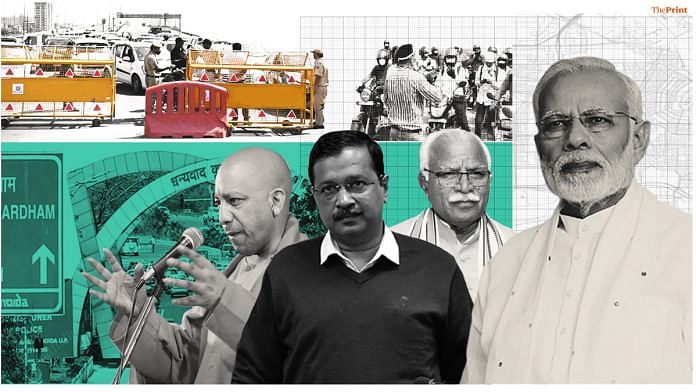Delhi CM Arvind Kejriwal announced Monday sealing of national capital’s borders with neighbouring states for a week. The Haryana government has decided to keep entries to Gurugram and Faridabad under stringent checks. On Sunday, the Gautam Buddh Nagar administration said that the Delhi-Noida border will remain sealed. The Supreme Court last week asked the Narendra Modi government to clarify its stand after a plea challenged the alleged restrictions on movement for permissible activities in NCR.
ThePrint asks: 3 states quarrel over NCR sealing: Time for Centre to step in and treat it as one unit?
Centre intervening in NCR’s issues would be violation of India’s federal structure
 Rakesh Mehta
Rakesh Mehta
Former chief secretary of Delhi
If the Centre intervenes, it will be a violation of the country’s federal structure and much of Haryana will have to give up statehood. Such a move will also contradict the Supreme Court’s February 2019 verdict that gave certain key decision-making powers to the Delhi
government. Delhi CM’s role will be reduced to nothing if NCR were to be treated as one unit. In the current Covid crisis, decisions regarding inter-state movement are being taken at the state-level and by district magistrates. It should remain that way.
The quarrel between the three states over inter-state travel has occured because there are many bureaucratic orders that are contradictory. The Delhi police has been making citizens’ lives difficult with stringent implementation of the e-pass system. On the other hand, the District Magistrate of Noida is issuing his own orders that contradict the MHA’s latest guidelines to ‘unlock’ India. Why can’t the Uttar Pradesh government issue common orders for these neighbouring districts after consulting with the Haryana and Delhi governments?
The only solution is to allow local issues to be solved locally. Then again, if the three states can’t cooperate with one another to reduce the day-to-day tensions of individuals and businesses, why are they in power in the first place?
Decision to restrict movement during Covid-19 being taken in public interest
 Prashant Kumar
Prashant Kumar
ADG, Law and order, Uttar Pradesh Police
Whether the Centre needs to step in and treat NCR as one unit raises a question about the competence of district magistrates of the respective states. The fact is that all guidelines, be it from the Centre, state governments or District Magistrates, have been competent. Such critical decisions have not been taken in a vacuum, but on the basis of local situations regarding the Covid-19 infection. These calls must have been taken on the grounds of reason, they are not arbitrary.
The general public is suffering because of these movement restrictions, but no matter how contradictory they may seem, these restrictions are being made according to public interest. The MHA has issued guidelines for the post-lockdown situation in the country, and state governments have also issued detailed guidelines in their respective territories, after having tracked this virus for over two months.
Everyone wants life to return to normal, but this cannot happen immediately. The Covid-19 pandemic is a dynamic situation — nothing is black and white or set in stone.
Modi govt must intervene to resolve conflict between Delhi, UP and Haryana
 Somnath Bharti
Somnath Bharti
AAP MLA and lawyer
It is the Narendra Modi government’s duty to intervene and resolve conflicts between two or more than two states. It should be noted that the Delhi government has been diligently following whatever lockdown norms and protocols were prescribed by the MHA since the lockdown was initiated on 24 March. Delhi chief minister Arvind Kejriwal’s coordination with the Centre has been appreciated by one and all.
If we look at Delhi, it was the first victim of Covid-19 because the Centre did not cease international flights in time. Also, the Delhi government has not been given any proportional relief support to tackle the virus as compared to the BJP-led governments in Haryana and Uttar Pradesh. Not even a penny has come from the Centre. This, despite Delhi having the best health infrastructure in the country that is open to residents from all states, neighbouring or otherwise. However, if the situation arises, the Delhi government may have to act in the interest of the citizens within its own territory. This means the Centre will have to sit down with Haryana and Uttar Pradesh governments to decide how to build health infrastructure in the two states, which are currently dependent on the private sector.
The Centre must act unbiased towards states while resolving this issue. It must play a vital role in smoothing the relationship between the three states in order to properly execute a coronavirus relief operation in the region.
Inter-state movement issue needs combined approach, but states also looking out for themselves
 Sudhanshu Mittal
Sudhanshu Mittal
Spokesperson, BJP
It will be hard for the Centre to step in constitutionally, but I am optimistic that the three states will come to an agreement. There is an NCR Board constituted for the integrated growth and development of the region, but the administrative domains of the respective areas are that of three different states. Although citizens and businesses dependent on inter-state movement are being inconvenienced, states are evaluating inter-state travel alongside SOPs for containing the spread of Covid — that is their priority and their prerogative. While there is a need for an integrated approach to this issue, every state is also looking out for itself.
The Centre can only play an advisory role in helping resolve the issues between the three states. There is no way it can take over the administrative machinery of this region and run it as one.
The Centre has done what it can do within its own powers. With a goal to unlock India, MHA has allowed border movement and lifted a lot of restrictions. But states have to take the final call, and make a decision that also considers a potential spike of Covid-19 cases as a factor.
Also read: Inter-state movement curbs: Are Indian states being paranoid or practical during Covid?
By Pia Krishnankutty, journalist at ThePrint




NCR is one organic / economic entity, although it spans three states whose governments should have the last word on keeping their citizens safe. One would not favour the Centre using a veto or overriding powers to impose its will; fortunately the only non BJP CM in the group is more loyal than the king. This is an issue where MHA – the ultimate custodian of cooperative federalism – should be able to carry conviction with the state governments. When in doubt, think, How would Sardar Patel have handled this problem.